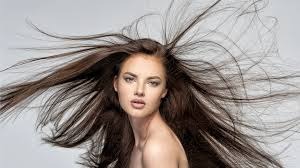Hair care is an essential aspect of personal grooming that affects not only the appearance of one’s locks but also their overall health. Among the vast array of hair care products available, hair conditioner plays a pivotal role in maintaining the shine, strength, and smoothness of hair strands. This guide aims to delve into the remarkable benefits and applications of hair conditioners, helping you unlock the secrets to achieving lustrous locks.
The Function of Hair Conditioner
Hair conditioners are specially formulated products that work to improve the texture, manageability, and appearance of hair. Unlike shampoos which primarily clean the scalp and hair, conditioners are designed to nourish, protect, and enhance the hair’s natural qualities. Their primary function is to restore moisture levels, prevent tangling, reduce frizz, and impart a sleek shine to your hair.
Types of Hair Conditioners
The market offers a multitude of conditioner types tailored to various hair needs. From daily conditioners that offer quick detangling to deep conditioners that provide intense hydration, there’s a product out there for every hair type. For those who frequently style their hair with heat tools, leave-in conditioners can act as a protective barrier. On the other hand, repair conditioners are enriched with proteins that help in rebuilding damaged hair.
Choosing the Right Conditioner for Your Hair Type
Selecting the ideal hair conditioner is essential for optimum hair health. Fine hair may benefit from volumising conditioners that don’t weigh the hair down, while thick or coarse hair types might require richer, more emollient formulas. For those with curly or textured hair, moisturising conditioners that define and enhance natural curls are recommended.
Ingredients to Look for in a Quality Hair Conditioner
When searching for a high-quality hair conditioner, it’s crucial to read the ingredients list. Look for natural oils such as argan, jojoba, or coconut oil, which hydrate and nourish the hair. Proteins such as keratin can strengthen the hair shaft, while botanical extracts provide a natural softness and shine. Avoiding harsh chemicals such as sulfates and parabens is also advisable, as these can strip the hair of its natural oils.
How to Use Hair Conditioner Effectively
To fully reap the benefits of hair conditioner, correct application is key. After shampooing, apply the conditioner primarily to the mid-lengths and ends of the hair, where it’s needed most. Using conditioner on the scalp can lead to an overproduction of oil and possibly scalp irritation. Let the conditioner sit for a few minutes to allow the active ingredients to penetrate the hair shaft before rinsing thoroughly with cool water, which helps to close the hair cuticle and seal in moisture.
Common Conditioner Mistakes to Avoid
One of the most common conditioner blunders is overusing the product, resulting in a heavy, greasy look. Likewise, not using enough conditioner can leave hair prone to breakage and lacklustre. Skipping conditioner altogether is another mistake, particularly for those who frequently use heat styling tools, as it leaves hair unprotected and susceptible to damage.
Integrating Hair Conditioner into Your Routine
Conditioner should be an integral part of your hair care routine. For best results, use a shampoo and conditioner duo that complements your hair type. This can help address specific hair concerns, such as dryness or colour retention. Regular use of the appropriate conditioner ensures that your hair remains hydrated, soft, and less prone to damage from environmental factors.
Conditioner as a Multi-Use Product
Did you know that hair conditioner can be versatile? Aside from its standard use after shampooing, some conditioners can double as a shaving cream or even as a temporary fix for a squeaky hinge. It’s a testament to the product’s inherent qualities to soften and smooth.
READ MORE : 5 Signs Your Home Needs a Professional Cleaning
The Role of Hair Conditioner in Hair Health
Consistent use of hair conditioner contributes significantly to hair health. By providing essential moisture and nutrients, conditioners can help prevent split ends and breakage. They also serve to maintain the hair’s natural pH balance, which is often disturbed by the alkalinity of shampoos. A healthy pH balance promotes stronger, more resilient hair.
When to Use a Specialised Hair Conditioner
There will be times when your hair needs extra attention. For example, after chemical treatments like colouring or perming, specialised conditioners can assist in recovery by providing extra moisture and protein. Furthermore, if you’re exposed to harsh conditions like extreme temperatures or chlorine, a suitably formulated conditioner can help protect and restore your hair.
Tailoring Hair Conditioner to Lifestyle Needs
Your lifestyle plays a part in the type of hair conditioner you might require. Active individuals who swim or spend a lot of time outdoors may need conditioners that offer UV protection or are designed to combat chlorine damage. Those with a hectic schedule might opt for a multi-purpose or leave-in conditioner that cuts down on styling time and fortifies the hair throughout the day.
Conclusion
Unlocking the lustrous potential of your hair lies in the correct selection and application of a hair conditioner. A deep understanding of the various types, key ingredients, and the role of conditioners in maintaining hair health can make all the difference. Integrating the right hair conditioner into your hair care regimen not only enhances the beauty of your locks but also elevates the integrity of your hair over time. For a comprehensive selection of high-quality options, explore the world of conditioning products that cater to diverse hair needs and lifestyles.
In summary, the journey to achieving and maintaining healthy, lustrous locks is greatly aided by the judicious use of a hair conditioner. It’s not merely a step to be glossed over but a fundamental cornerstone of hair care that bears the formidable power to transform your hair’s appearance and health.
